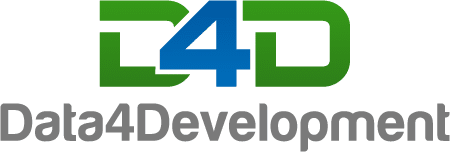Facilitated by the Scotland’s International Development Alliance , Data4Development gave training on data transparency using IATI.
Nine non-profit organisations from the UK participated and about half of them were not yet publishing in IATI.
The objectives of this session were to provide the attendees with a solid understanding of the goal and use of IATI, its main concepts and the various tools available to realise IATI publication and read IATI data. Interactive sessions were proposed with several real data implementation exercises to render the acquisition of the knowledge easier.As an IATI enthusiast, Data4Development was pleased to have collaborated with Scotland’s International Development Alliance for the facilitation of this training.
Here is some information shared by Laura Ffrench-Constant, the Effectiveness & Learning Advisor at the Scotland’s International Development Alliance about their perception of IATI.
Interview with Laura Ffrench-Constant from Scotland’s International Development Alliance
1. Tell us about your role?
I am the Effectiveness & Learning Advisor at Scotland’s International Development Alliance. This involves organising online training , writing online resources like our comparison of IATI publishing tools and I also coordinate IATI publishing for our organisation.
2. When did the team start to learn about IATI? Our organisation started to publish data to the IATI standard in 2015. We started publishing to IATI because it was desirable for a new project donor. As a network body convening the Scottish sector working around the world, we wanted to walk the talk and lead by example, showing that publishing to IATI isn’t as hard as you might think and it is really good for your communications, transparency and partnership approach to make your project activities open to the public.
3. How effective is the IATI standard?
The IATI standard is a really important initiative syncing up data from different donors and a very valuable source of information for wider research and scrutiny purposes. The standard allows us to ask: how efficient and coherent is our effort, because it publishes both budgets and results data for over 1 million activities. The COVID-19 pandemic has highlighted how real-time data is essential to make evidence-informed decisions, and the wealth of project data from IATI is already being used by many researchers to analyse the effectiveness of the COVID-19 response.
4. What benefits could implementing organisations gain by complying with the IATI standard?
Publishing to IATI means sharing your activities with the wider sector, the press and the public. This wealth of data is used by researchers looking for collaborators, large iNGOs looking for new downstream partners and donors looking for trends in development cooperation spending. Publishing your data to IATI improves the accountability of your project but it can also help you gain future funds when IATI publishing crops up as a question at the due diligence stage with a new donor.
5. What are the challenges that organisations face publishing data?
There are many challenges associated with publishing to IATI. In small, voluntarily run organisations, finding time for IATI publishing can be difficult and it can be hard to gather the data in a different format and to a different timescale compared to your regular accounting processes. In a large, multi-country organisation it can be hard to export data from project management systems, and to know who is responsible for publishing what, for example, are you the accountable or implementing organisation? Data quality is an overarching challenge, it is really easy to rush and miss something like the correct IATI identifier for the activity, the right currency, or the exact date.
6. What improvements do you want to see in IATI data?
It would be great to see more and more organisations publishing to IATI whether they are required to do so by donors or not. And it would also be fantastic to see the detail in the IATI data increase, with project results attached to activities, and with more OECD DAC and SDG level coding, allowing us to understand the contributions different projects are making to our global targets.
7. How did you find the IATI training? Would we recommend it to other people?
In our experience, IATI can be demystified when we share our challenges and learn together with our peers, whether we are micro-NGOs or federated international charities. We can all be IATI and transparency champions in our work, and IATI training is the first step.
Survey results of the online IATI Training
Thanks to a survey done by the Scotland’s International Development Alliance, attendees were on average 9/10 times likely to recommend the course to a friend or colleague. The course was weighted 8.7 / 10 for overall usefulness. 79% feel more confident about the use and publication in IATI.
We, as Data4Development are proud to have contributed to the spread and transfer of the IATI knowledge.
Want to learn more about IATI?
Then don’t hesitate to contact us at [email protected] to have more information about our services.
